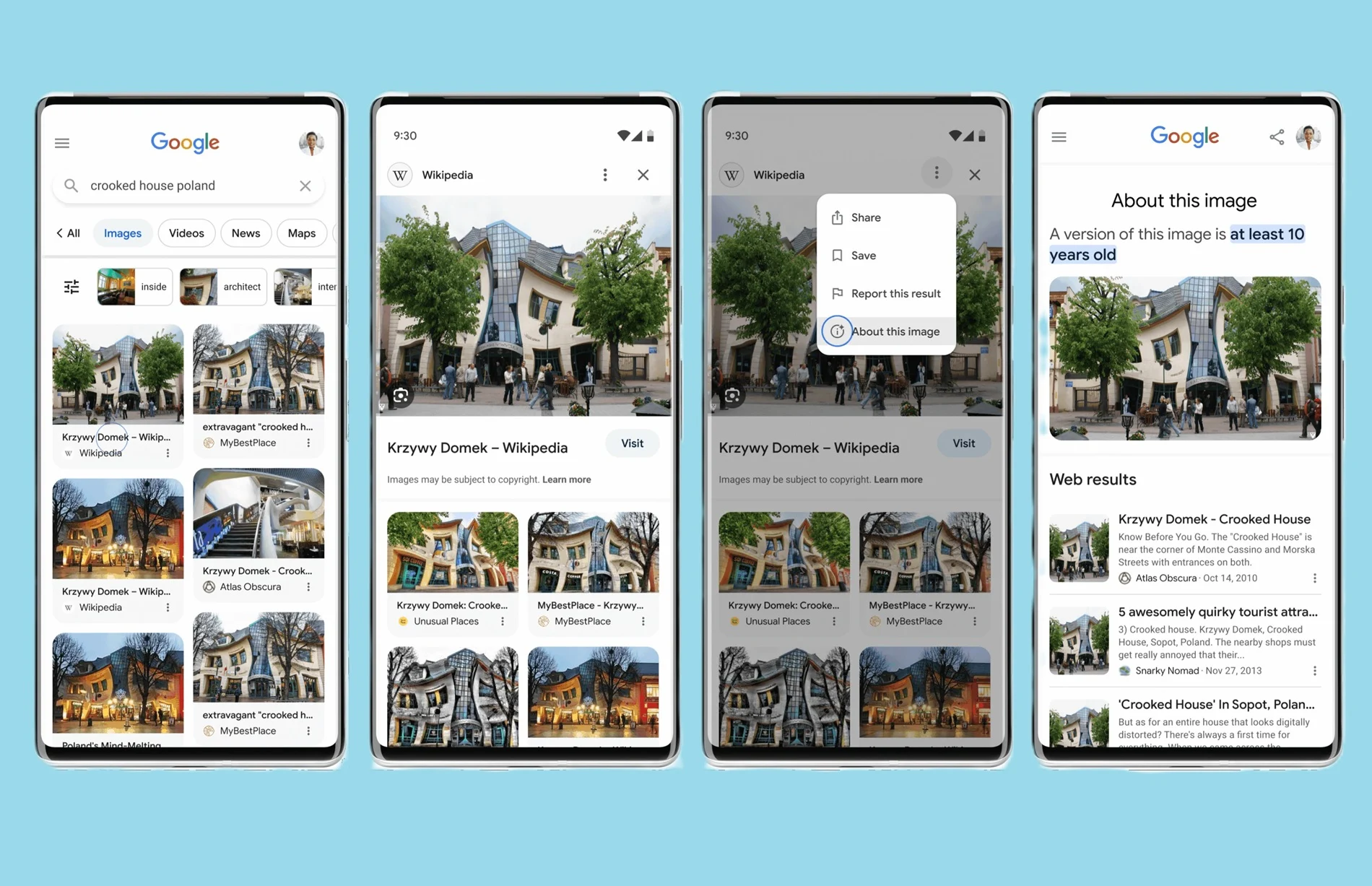In a bid to bolster transparency and combat the rampant spread of disinformation, Google has unveiled its latest offering: "about this image." This powerful tool delves into the rich tapestry of metadata associated with images, giving users unprecedented insights into their origins and usage across the vast expanse of the internet.
The journey began back in May, when Google teased the development of this feature. Today, it officially debuts as part of the search engine, leaving no room for photo impostors attempting to pass off a nostalgic 1988 Burger King Alf plushie as their own creation.
Photo: Google
Here's how it unfolds: within Google Search, one merely needs to select an image and then nudge the three dots nestled in the right-hand corner to unleash the magic. What follows is a treasure trove of information – the image's initial publication date, any subsequent appearances, and its journey through the digital realm. It's a cornucopia of context.
Practical applications for this tool are as diverse as they are essential. Users can now scrutinize the authenticity of images accompanying news stories, ensuring they aren't lifted out of context from a bygone era to peddle misinformation. Furthermore, the tool unveils the manner in which various websites utilize and describe the image, akin to the existing "perspectives" filter and the "about this result" tab. For added convenience, Google promises additional entry points via the "more about this page" link, hinting at future enhancements.
In a world increasingly dominated by artificial intelligence, discerning AI-generated images from authentic ones can be a daunting task. Google's solution? The tool explicitly marks images produced by AI, although this hinges on metadata, necessitating the cooperation of the original creators. Notably, Google's AI-generated images will always come adorned with the requisite metadata, ensuring clear identification.
But Google's innovation doesn't stop here. Fact Check Explorer, a boon for journalists, is set to expand its scope to include images, fortifying its mission to weed out falsehoods. Beyond image-centric searches, the tech behemoth unveils another gem: software capable of generating AI-driven descriptions for websites, a boon for researchers navigating the labyrinthine web.
In this era where disinformation and AI-generated content loom large, Google's commitment to equipping users with tools for discernment and verification is a welcome step towards a more informed digital landscape.
Read next: AI Debiasing Revolution: Brock University Unveils a Game-Changer
The journey began back in May, when Google teased the development of this feature. Today, it officially debuts as part of the search engine, leaving no room for photo impostors attempting to pass off a nostalgic 1988 Burger King Alf plushie as their own creation.
Photo: Google
Here's how it unfolds: within Google Search, one merely needs to select an image and then nudge the three dots nestled in the right-hand corner to unleash the magic. What follows is a treasure trove of information – the image's initial publication date, any subsequent appearances, and its journey through the digital realm. It's a cornucopia of context.
Practical applications for this tool are as diverse as they are essential. Users can now scrutinize the authenticity of images accompanying news stories, ensuring they aren't lifted out of context from a bygone era to peddle misinformation. Furthermore, the tool unveils the manner in which various websites utilize and describe the image, akin to the existing "perspectives" filter and the "about this result" tab. For added convenience, Google promises additional entry points via the "more about this page" link, hinting at future enhancements.
In a world increasingly dominated by artificial intelligence, discerning AI-generated images from authentic ones can be a daunting task. Google's solution? The tool explicitly marks images produced by AI, although this hinges on metadata, necessitating the cooperation of the original creators. Notably, Google's AI-generated images will always come adorned with the requisite metadata, ensuring clear identification.
But Google's innovation doesn't stop here. Fact Check Explorer, a boon for journalists, is set to expand its scope to include images, fortifying its mission to weed out falsehoods. Beyond image-centric searches, the tech behemoth unveils another gem: software capable of generating AI-driven descriptions for websites, a boon for researchers navigating the labyrinthine web.
In this era where disinformation and AI-generated content loom large, Google's commitment to equipping users with tools for discernment and verification is a welcome step towards a more informed digital landscape.
Read next: AI Debiasing Revolution: Brock University Unveils a Game-Changer

